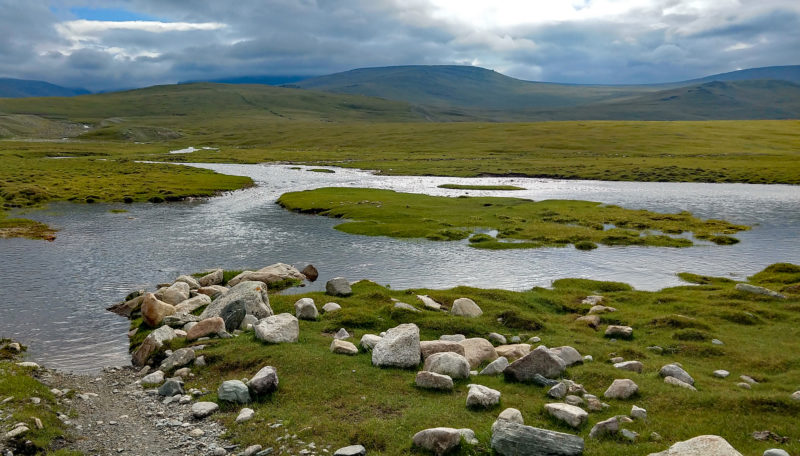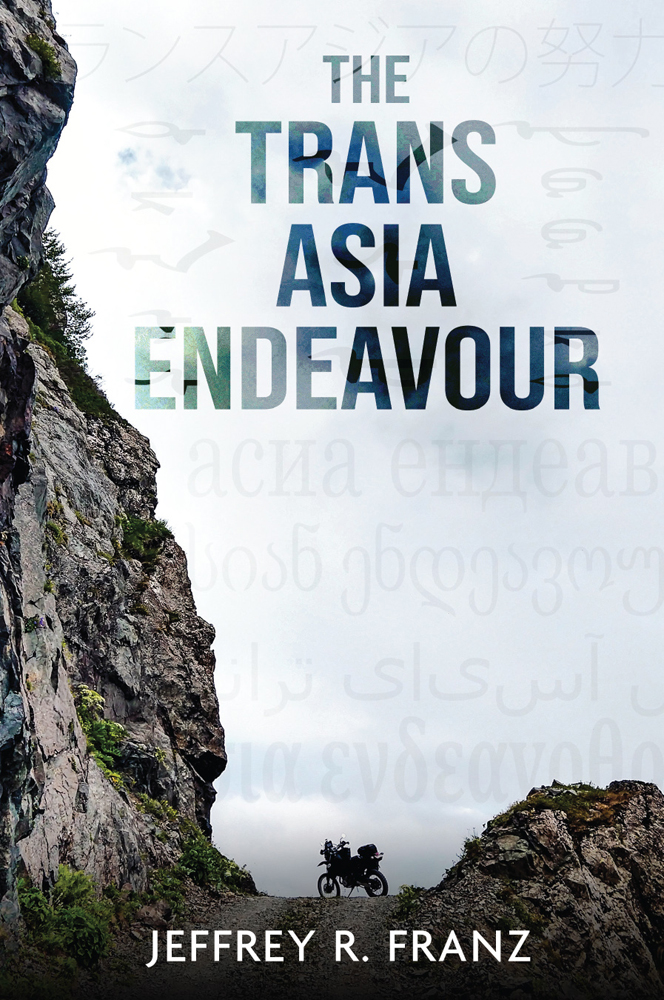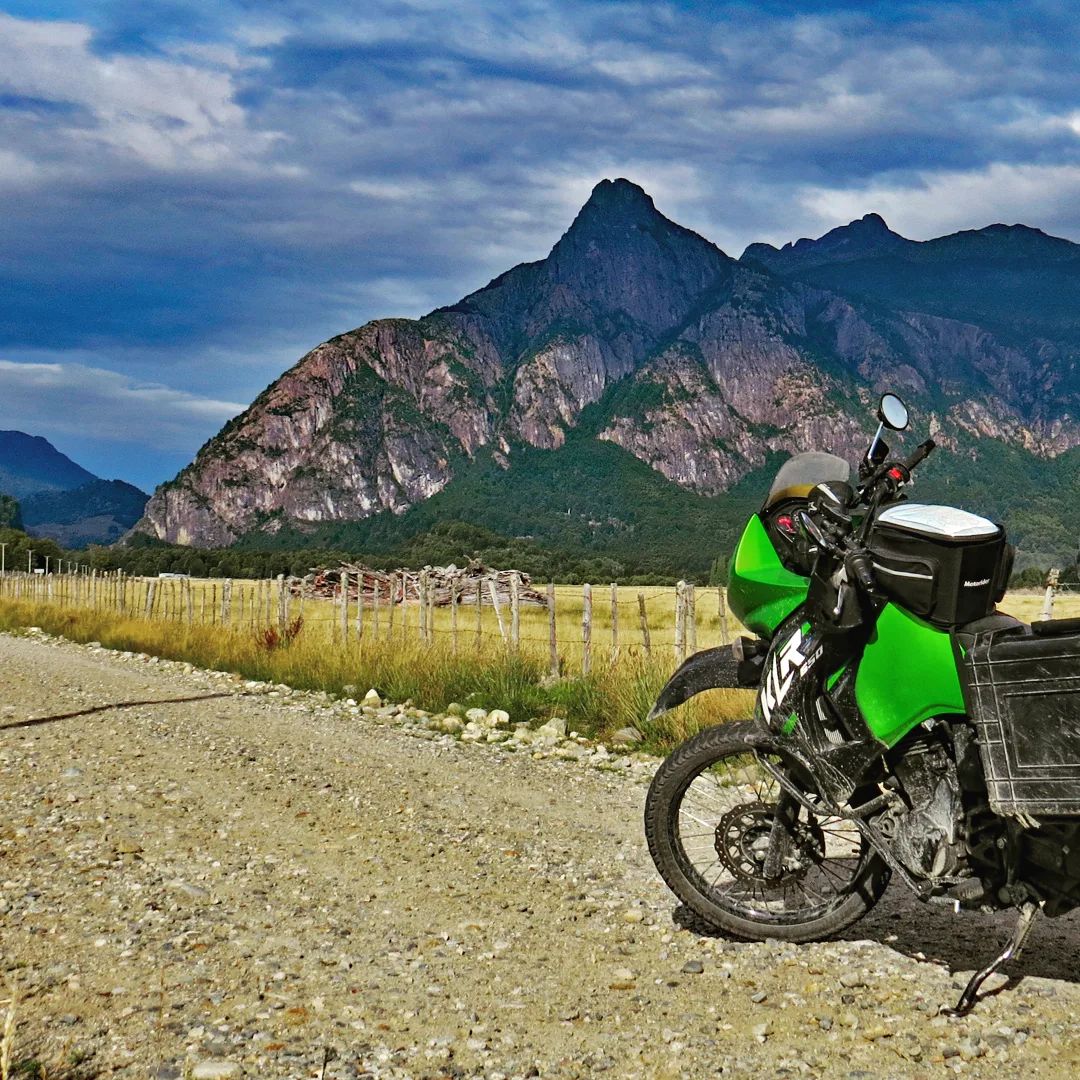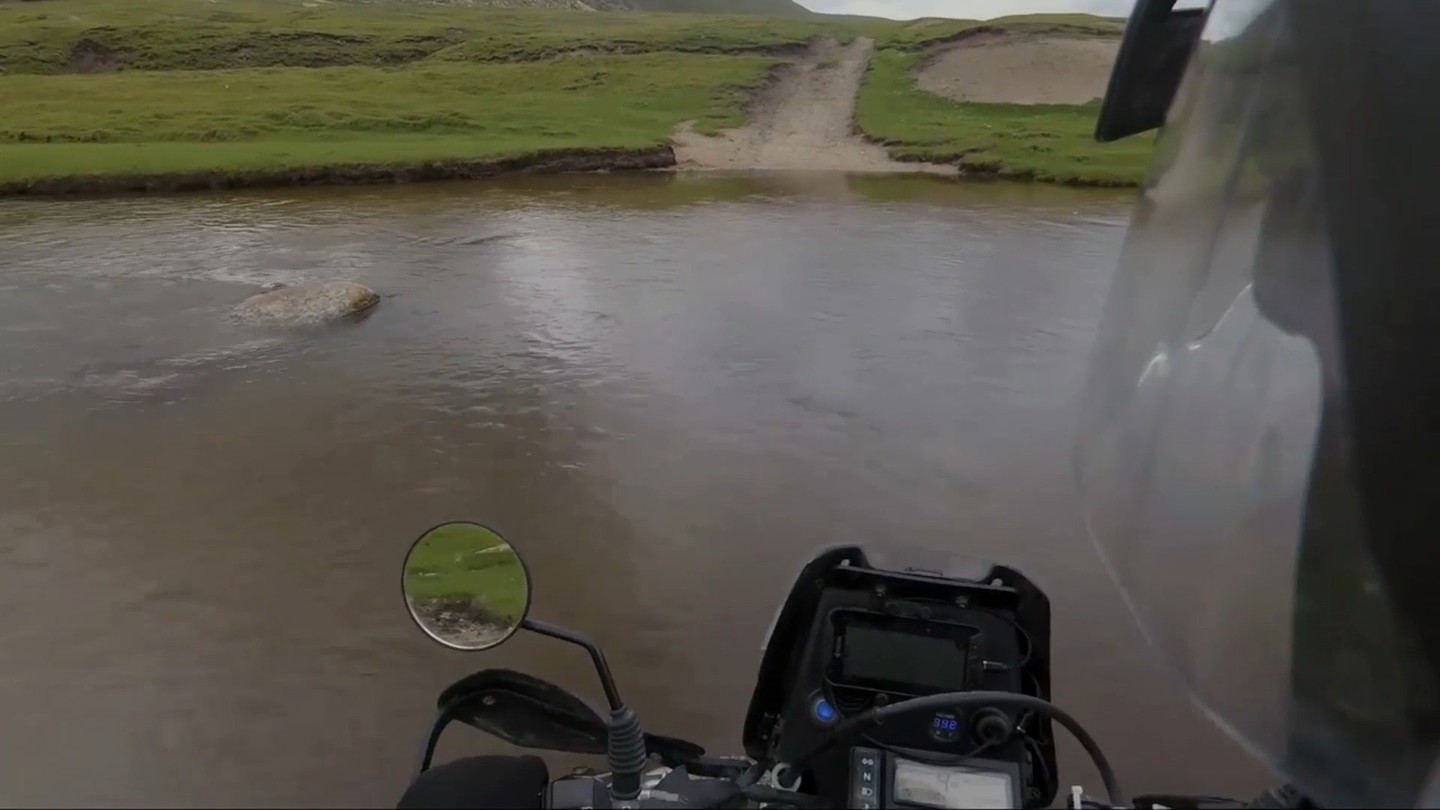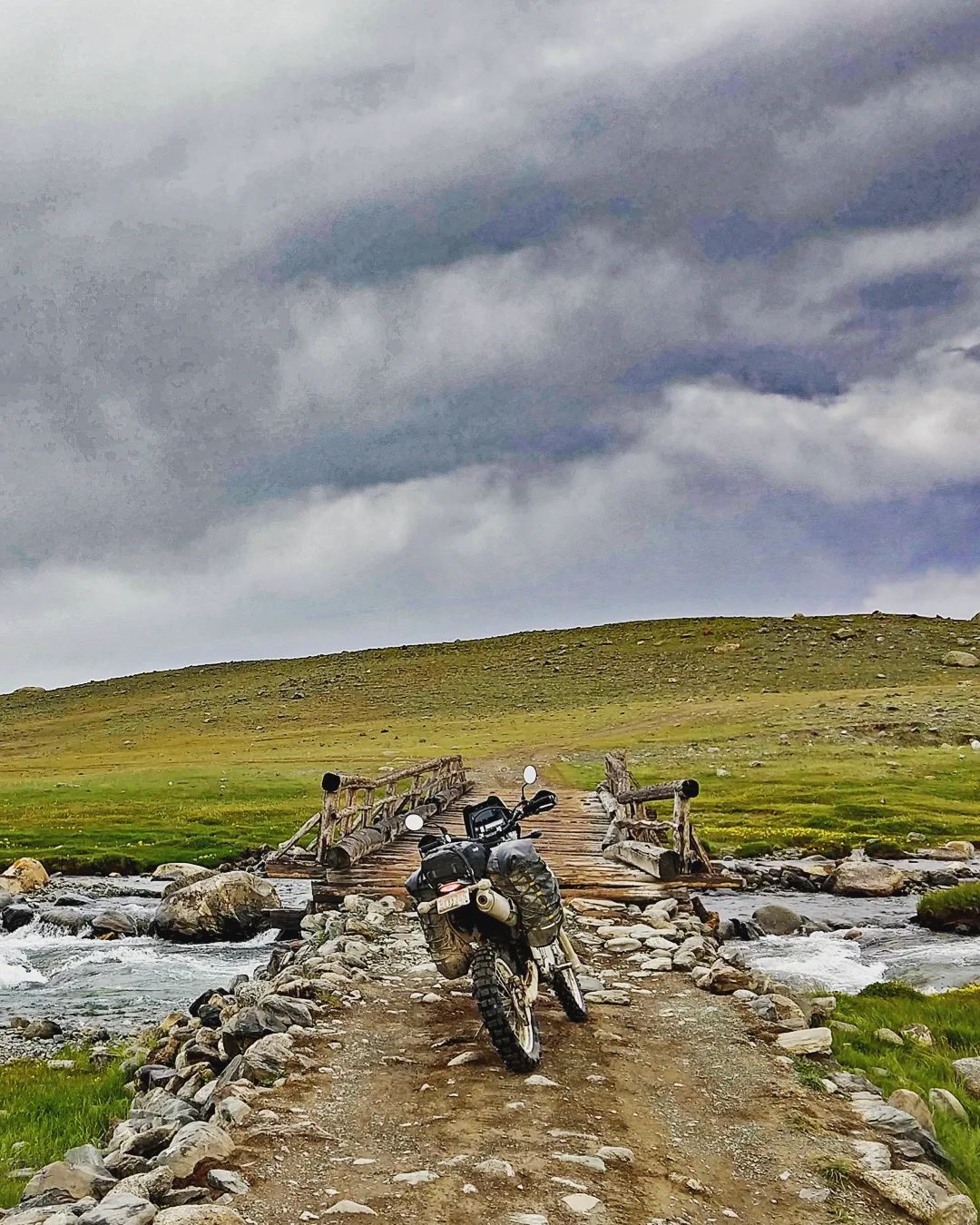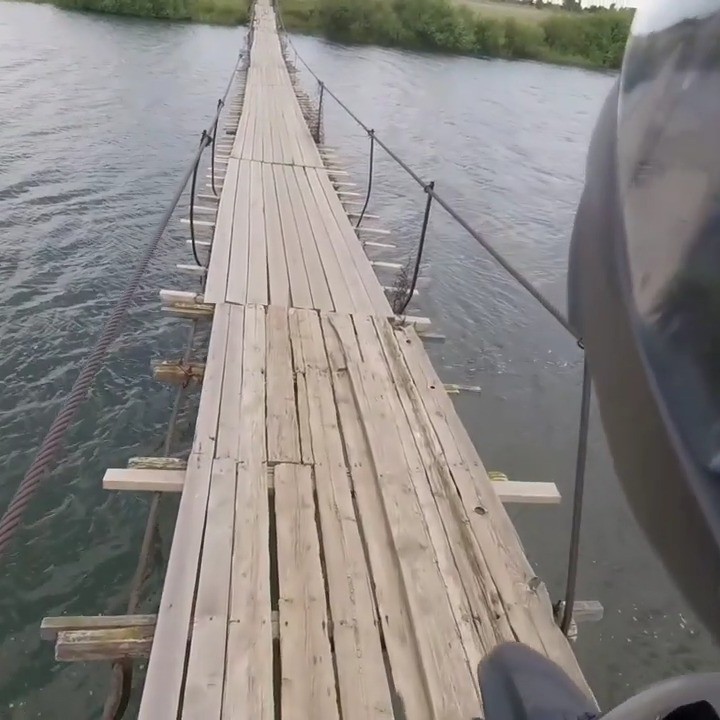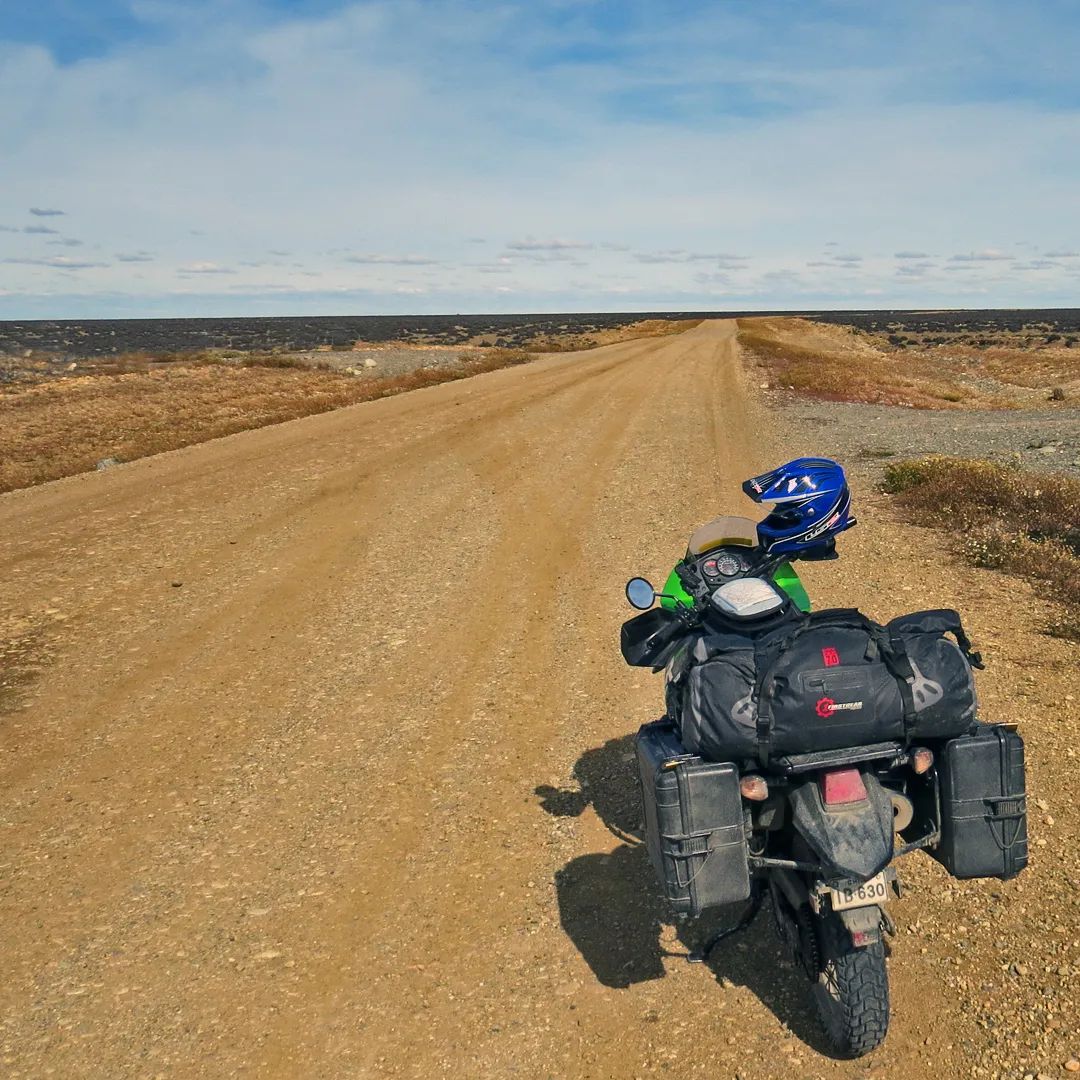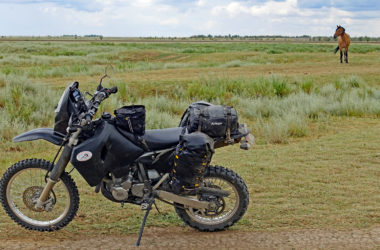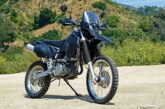Having
said farewell to the warrior princesses and the ever-scowling Patriarch, my
solo off-road ride across Asia continued beneath falling rain and chilly temperatures
in the mid 40’s (7⁰ C). After a morning of weaving
through some narrow paths and extremely rocky trails in the mountains of
Mongolia, eventually I connected with a single track that headed down into a
long wide river valley. It was utterly saturated, a byproduct of active runoff
from winter’s snow, a massively wet spring/early summer, and last night’s wrath
of god deluge. I wasn’t thrilled.
When I descended to the valley floor, the track
vanished into a 50 meter wide section of flooded lowland. The next 45 minutes
were spent looking for a way around it, to no avail, so I dismounted and waded
in to check the depth. It was not quite a meter deep. I allowed myself a moment
of smugness; in preparation for such obstacles, I’d sealed up the DRZ’s side
airbox panel while also adding a second breather hose to the carb. I made it
across the long stretch of flooded lowland without a hitch, and a quick check
of the airbox revealed it was completely dry. Perfect.
Now situated on the valley floor, the going was
slow, erratic and frustrating. The only way out of this valley demanded a
crossing of the main river. For more than two hours I tried to reach the
shoreline, which was no more than 400 meters away. Each route ended in an
impassable soggy quagmire. The grassy watery mud mixture almost stranded me on
several occasions, and I was acutely aware of the consequences of getting stuck
here in such a remote location.
Perhaps having learned a lesson or two from my
previous mudcapades earlier in this trip, I chose to get off the bike, walk 50
meters or so from mound to mound in search of a route, then return to the bike
and ride that short section. Lather, rinse, repeat. Pretty sure I displaced a
metric ton of mud as I zigzagged through the valley, tempting the fates time
and again as I managed to avoid getting suctioned into the diabolical
sogginess.
Having made it to the river bank at last, I again
got off the bike and walked up and down the shoreline for 300 meters in each
direction. It didn’t look good. The current was fast and I couldn’t see the
bottom in any area. I finally found a place where I thought it might be
possible, so I waded in on foot to thoroughly investigate.
It was about 15 meters wide and by the time I’d
reached the middle, the frigid snowmelt water was up to my waist (I’m about
6’3”/190 cm). I was working hard to stay on my feet, such was the current’s
strength. The depth and the fast-moving water combined for an impossible
crossing at this spot.
Still
standing in the river’s center, I glanced up stream to look for other options.
Nothing. I then turned down river and spotted a potentially better crossing
point, just fifteen meters or so away, where the water was clearly shallower. I
scolded myself for not having seen it earlier. Testing my footing with each
boot before committing, I began to carefully move downstream in that direction.
The powerful current was all too eager to help.
I took another step in the waist deep water and
my MX boot slipped forward on a large boulder. Except there was nothing on the
other side of the rock; it was a massive drop-off in depth. Now on only one
leg, the current nonchalantly picked me up and pulled me into the drop-off,
which I quickly discovered was deeper than I am tall.
And just like that, I was treading water in full
moto gear while being swept down a rapid Mongolian river. Curiously, the first
thought that popped into my head was:
“Should I switch on the helmet cam?”
